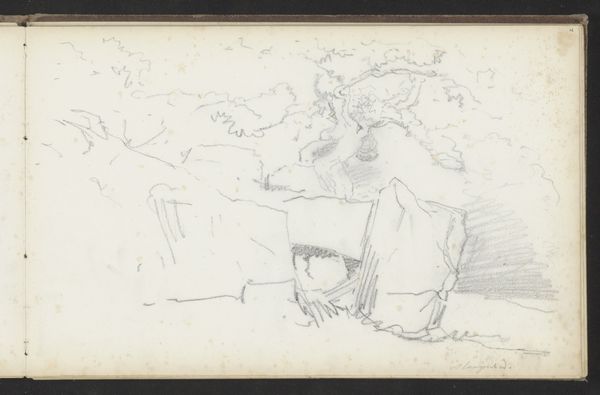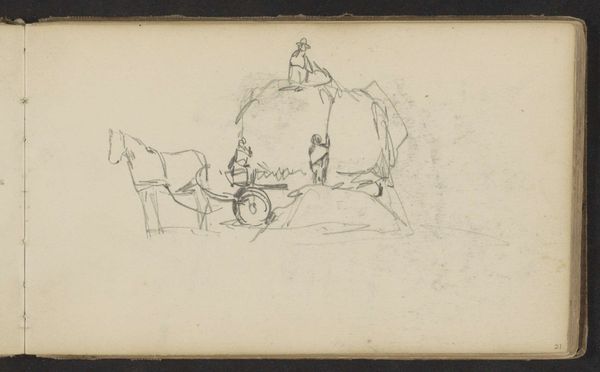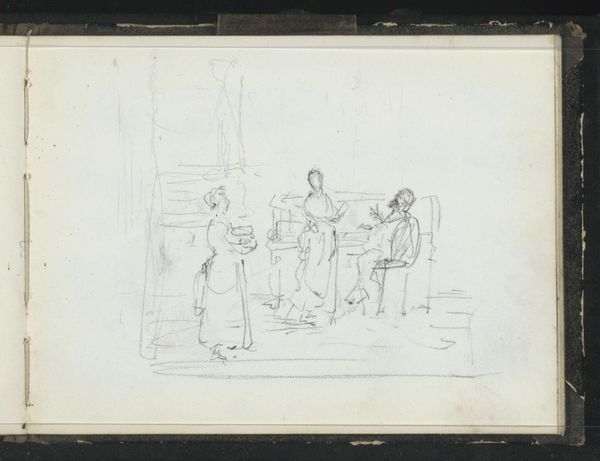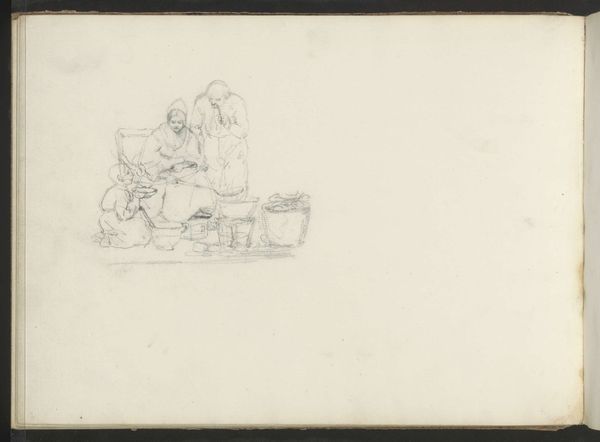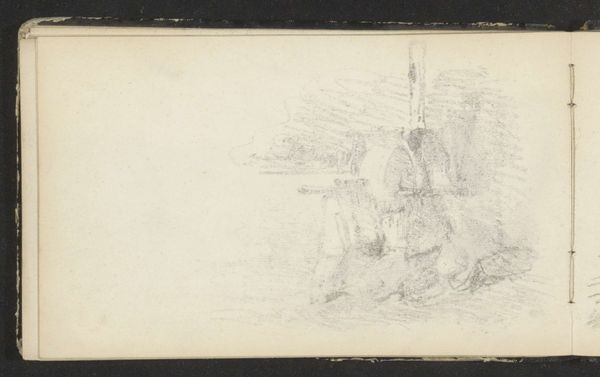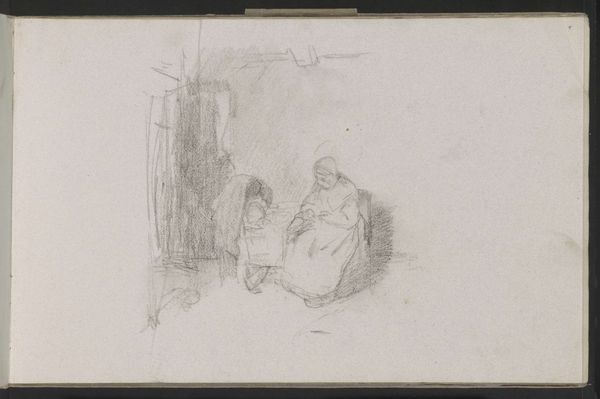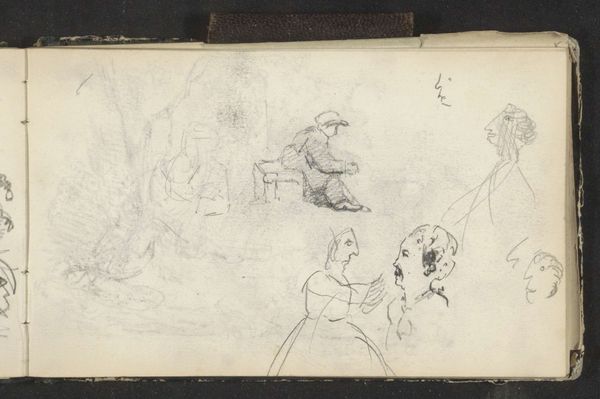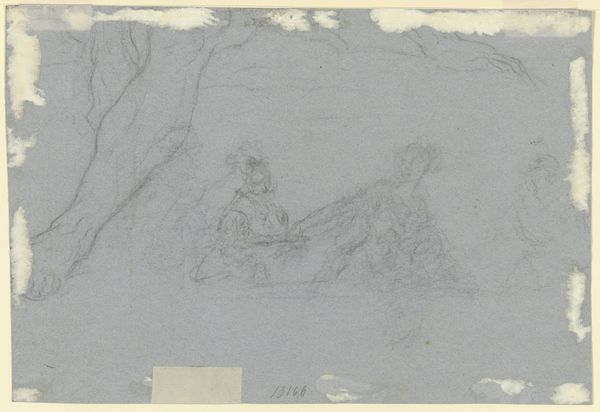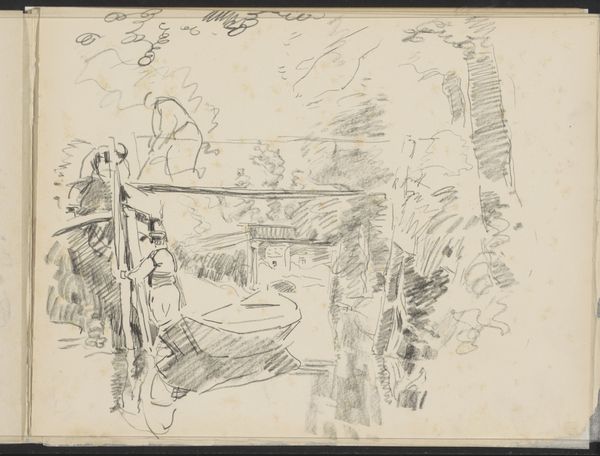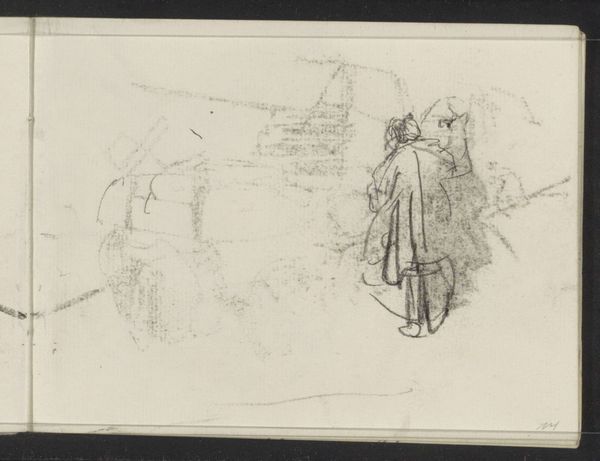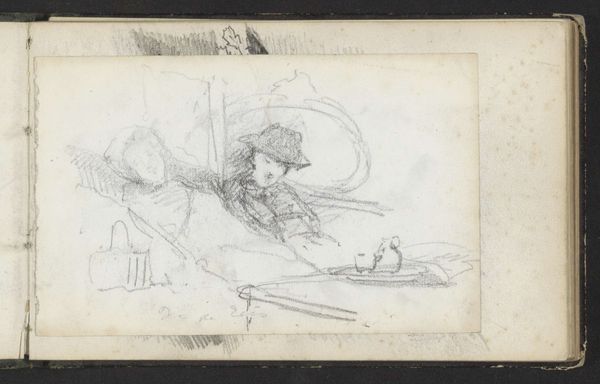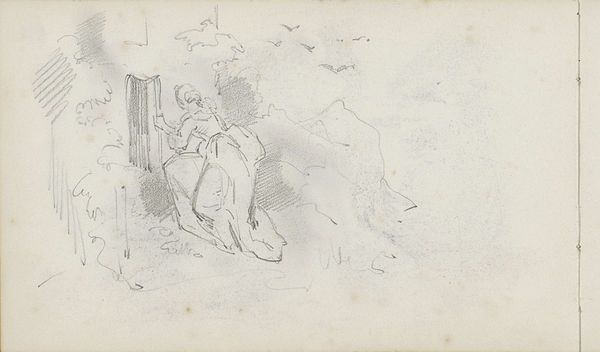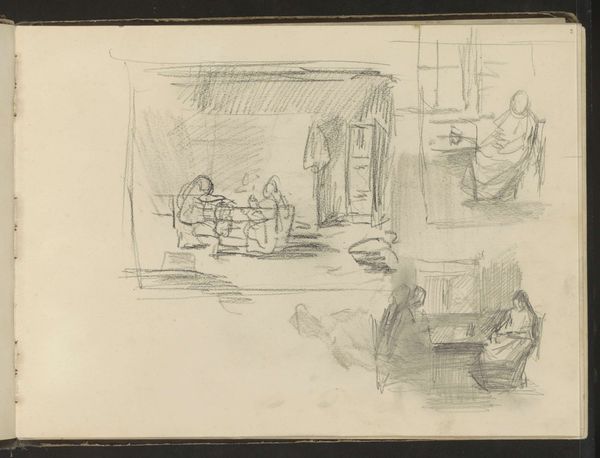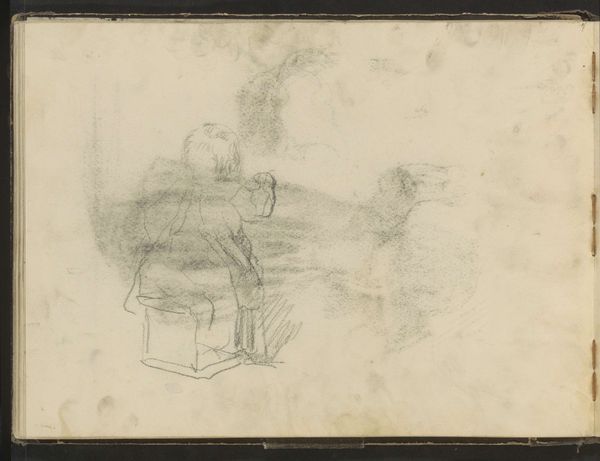
drawing, pencil
#
drawing
#
quirky sketch
#
impressionism
#
sketch book
#
figuration
#
personal sketchbook
#
idea generation sketch
#
sketchwork
#
ink drawing experimentation
#
pen-ink sketch
#
pencil
#
sketchbook drawing
#
genre-painting
#
storyboard and sketchbook work
#
sketchbook art
Copyright: Rijks Museum: Open Domain
Curator: Oh, this one’s delightful! There's something so wonderfully ephemeral about this sketch. I’m quite drawn to it. Editor: There is a rawness that invites me to think about it formally, it’s rudimentary and subtle but does not evoke any pathos. Curator: You are looking at Albert Neuhuys' "Twee staande figuren met kappen bij een hek," or "Two Standing Figures with Hoods by a Gate" from between 1854 and 1914. It's part of the Rijksmuseum collection and, tell me, what do you find formally compelling? Editor: The immediate focus falls upon the geometric structures—the figures rendered as simple lines and their relationship with their environment that is delineated. The repetitive verticality, how each line establishes an axis that supports a symbolic frame. I am here also observing some qualities and some form. Curator: Exactly! The stark lines offer a fleeting peek into everyday life, that almost seem like the start of something larger, a snapshot from a longer narrative. I feel a connection to those quick, seeking lines. Editor: I would argue those fleeting lines suggest something far more complex: it captures the transient nature of existence, of what is being. Neuhuys, I am thinking, gives us in essence only an underlying structure. And yet, there is also more, no? Curator: It reminds us that art isn't always about perfect polish; it's often in those raw, vulnerable moments that something true shines through. Doesn't it evoke something tender? Editor: Perhaps not in a direct or representational manner, but the drawing gives us some clues: rhythm and asymmetry offer different types of visual appeal which make you have this sensation that I think it would be, what did you call it… tenderness? Curator: To me, this sketch by Neuhuys isn't merely lines on paper. It's an invitation to dream, to feel, to connect. To value the beauty in being unfinished. Editor: Well said. Let’s move on to our next piece.
Comments
No comments
Be the first to comment and join the conversation on the ultimate creative platform.
